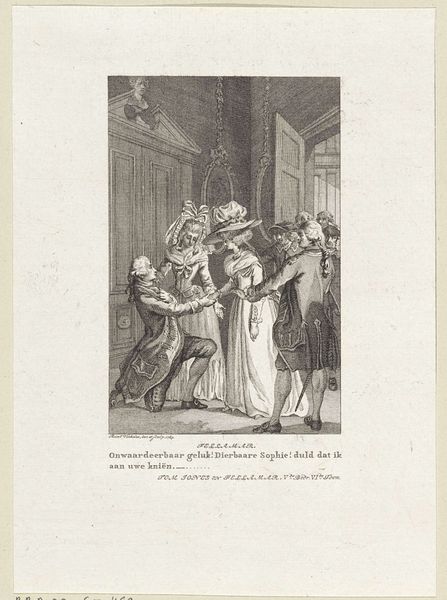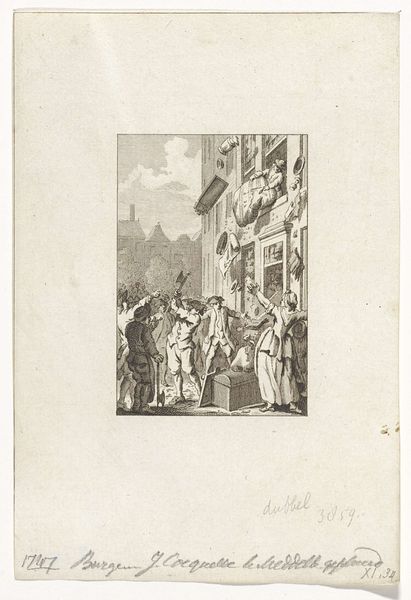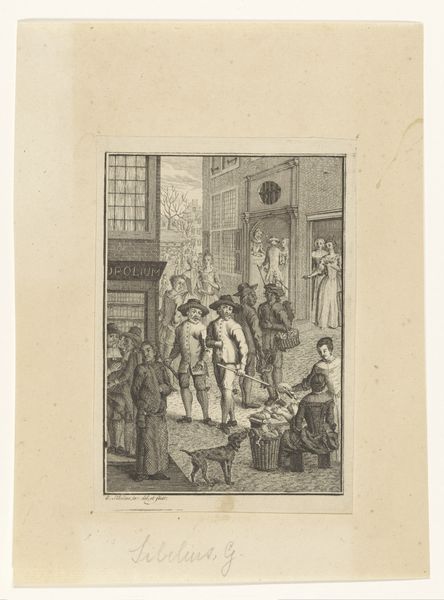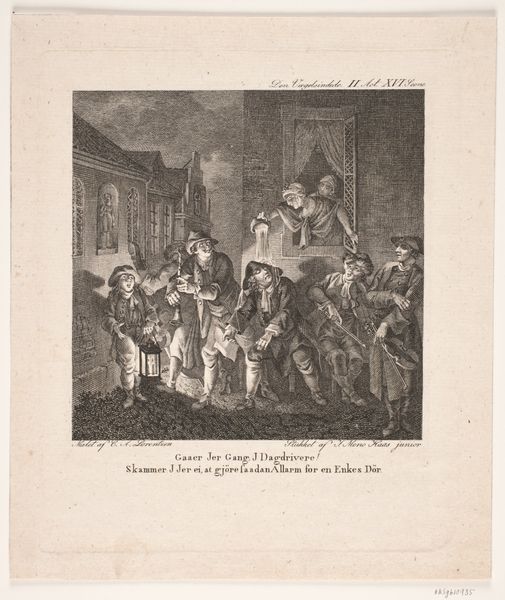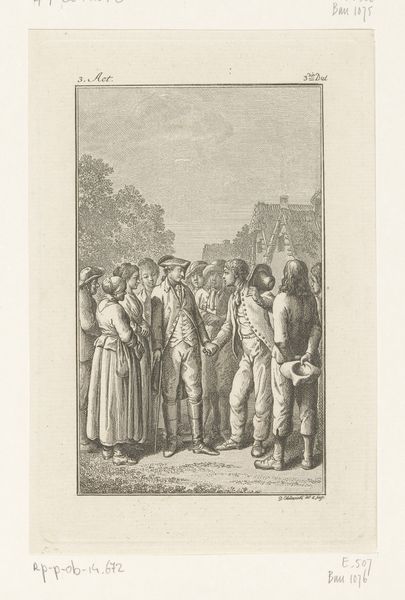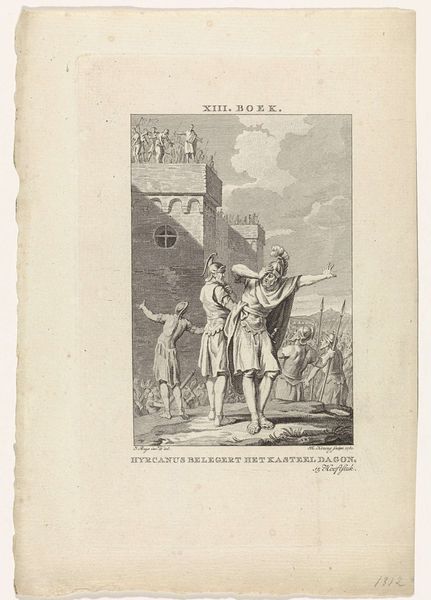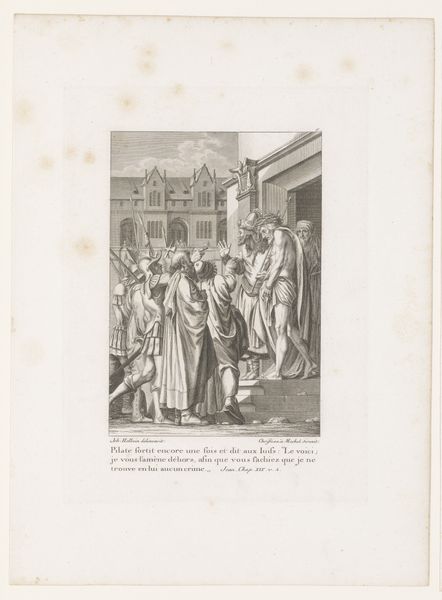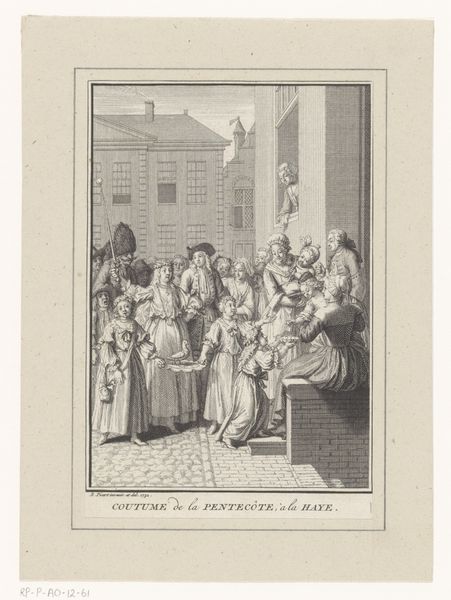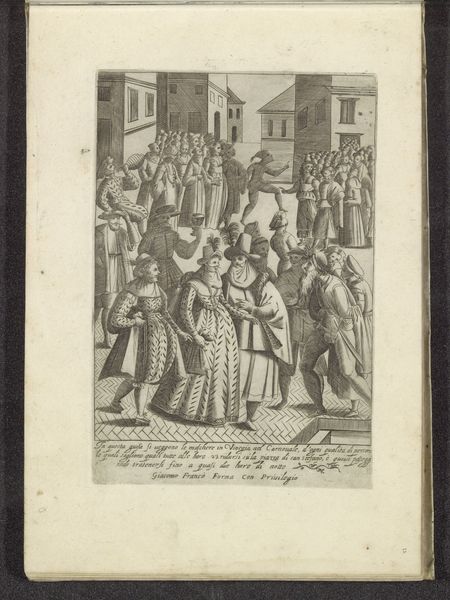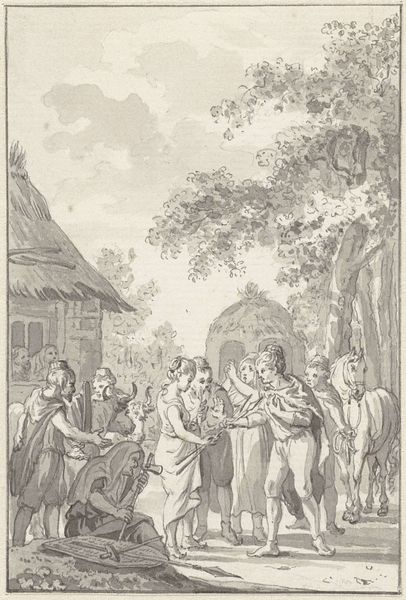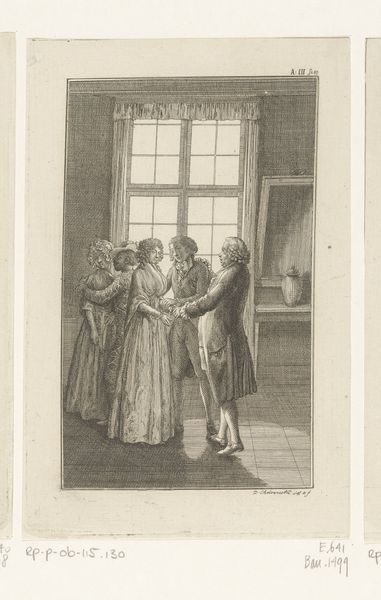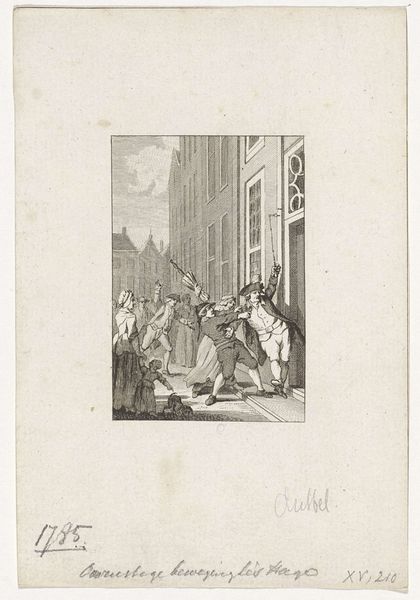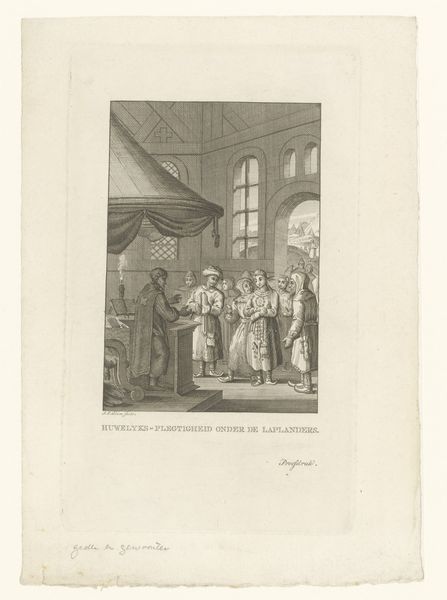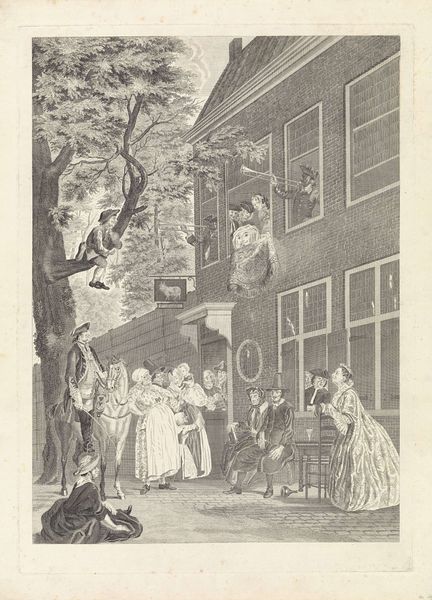
print, engraving
#
portrait
#
neoclacissism
#
narrative-art
# print
#
old engraving style
#
traditional media
#
19th century
#
genre-painting
#
engraving
Dimensions: height 158 mm, width 94 mm
Copyright: Rijks Museum: Open Domain
This engraving, titled *De schilderij vertooner*, or *The Picture Showman*, was made by Leendert Brasser sometime in the 18th century. It's an intriguing object, not just for its content, but for its status as a print. Engraving is an intaglio process, meaning the image is incised into a plate, usually copper, and then filled with ink. The artist would have used a tool called a burin to carve the image into the metal with extreme precision. The matrix is then printed onto paper in reverse, resulting in fine lines and intricate detail. The paper itself, likely handmade, would have added a tactile quality to the finished product. Prints like this were often produced in multiples, making art more accessible to a wider audience, rather than being confined to the wealthy elite. The amount of skill involved in the production process shows how art and craft were intertwined, reflecting the socio-economic dynamics of the 1700s. So next time you look at an engraving, think about the hands that shaped it, and the world that made it possible.
Comments
No comments
Be the first to comment and join the conversation on the ultimate creative platform.
